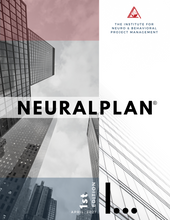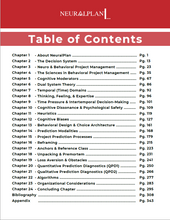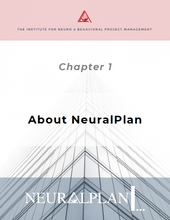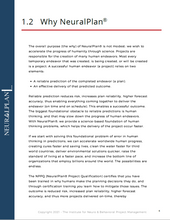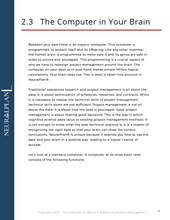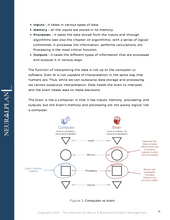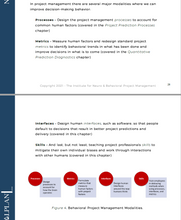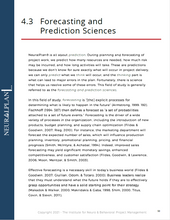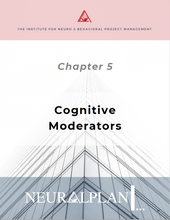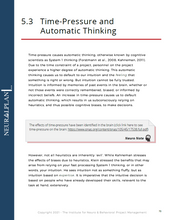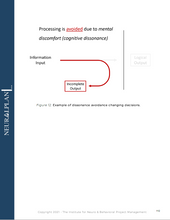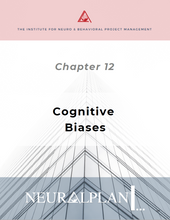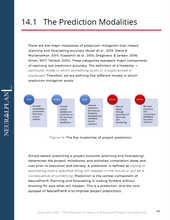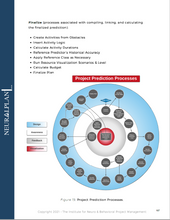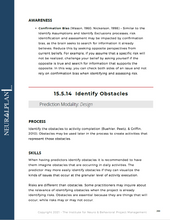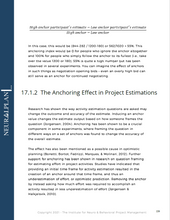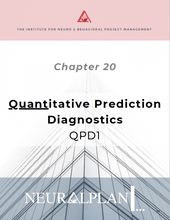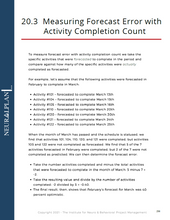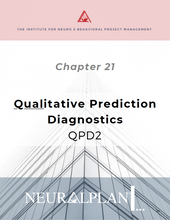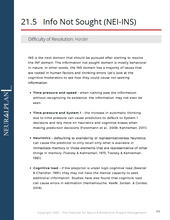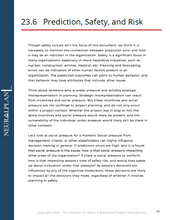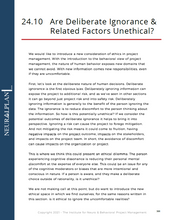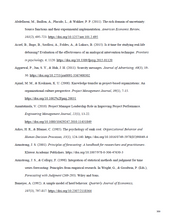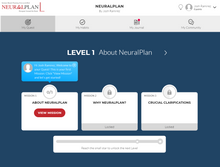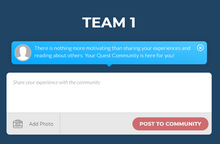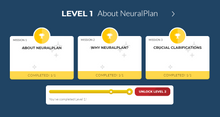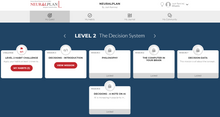
6 Hours Personalized Coaching + NPPQ Credential
This is the standard full NPPQ self-paced, on-demand course, PLUS 6 hours of personalized virtual coaching with one of the researchers, Dr. Josh Ramirez. You may choose to discuss specific topics you have more questions on in the course, or may dive into any number of issues in cognition, planning, forecasting, and risk. Sessions will be custom scheduled at a time that works for both you and Dr. Ramirez.
Project planning with cognitive science
320 pages of planning, forecasting, and risk training, designed from over 250 evidence-based research studies on human cognition. The course is self-paced, including 44 videos from the researchers, Dr. Josh Ramirez and Dr. Shari De Baets. You have one year to complete the course (60 hours, or 60 PDUs for project management. PMI categories: 20 ways of working, 29 power skills, 11 business acumen). Monthly payment options may be available for those who qualify in some U.S. states.
Dr. Josh E Ramirez, NPPQ, PMP (United States)

Dr. Shari De Baets, NPPQ (Belgium)

The training is for the master planner in project management, regardless of their role in the organization. If you plan, forecast, or evaluate risk in projects, and you want to be a master at prediction, the NPPQ credential offers you the science.
See images with examples of the NeuralPlan manual and screenshots of the MyQuest course learning platform.
For more background on Behavioral Project Management and NeuralPlan foundations, listen to the following podcasts:
- https://www.pmi.org/chapters/wdc/pmi-resources/pm-podcasts/pm-point-of-view-69
- https://businessradiox.com/podcast/pmo-with-joe/e50-the-science-of-project-management-and-learning-agility-for-leadership-effectiveness/
- https://podcasts.google.com/feed/aHR0cHM6Ly9wbWl3ZGMubGlic3luLmNvbS9yc3M?sa=X&ved=0CAUQrrcFahcKEwiY1Muz3uPxAhUAAAAAHQAAAAAQAQ
Immediate access
When you purchase the course you will get immediate access to the learning platform and training manual, and you can start learning at your own pace, right away! No waiting for the course to open, flying to the class location, etc. Your coaching sessions will be scheduled throughout.
The benefits
Organizational benefits of learning planning that is designed around the way humans operate are numerous:
- Reduced risk realization
- More reliable and accurate schedule milestones
- Increased scope capture
- More projects delivered closer to budget
From a professional development perspective:
- Higher client trust in your planning
- Being a project planning leader in your professional network
- Having a premium credential that is evidence-based
Reliable plans are important because they accelerate delivery
The course is built for the practitioner and is intended to give practical solutions for planning and forecasting that are designed around the way humans process information during predictions.
The NPPQ (NeuralPlan Project Planning Qualification) certifies you have been trained in why humans make the planning decisions they do, and learning how to mitigate those issues. This means increased risk mitigation, increased plan reliability, higher forecast accuracy, and thus more projects delivered on time and on budget, thereby increasing customer trust and boosting your bottom line.
It's no longer good enough for us in the project management field to just monitor and organize projects. We must use proven methods to change project outcomes by redesigning our processes around the human brain.
Project success depends on accurate prediction
On-time completion of the milestone relies on two primary elements: accurate prediction of what will be delivered, and effective delivery of what was predicted.
The same is true of weekly or monthly forecasting. Anything that requires looking forward in a project is prediction. Because of the nature of the brain, looking forward to the future and calculating durations, resource quantities, and cost tend to be optimistic, which in turn increases risk and results in unrealistic plans and forecasts. Not only is this bad for the organization, but it also reduces customer trust in outcomes, results in inefficiencies, and has a material impact on profit margins.
What’s in a name?
NeuralPlan takes its name from designing planning processes around the way the brain operates and humans think - thus the words neural (designed around human cognition) and plan (project planning). It is not purely neuroscience, not purely behavioral science, not purely cognitive psychology, and not purely social psychology. It is a whole-brain perspective on how humans make predictions in plans and forecasts in projects.
The course
This course includes 10 hours of coaching with one of the researchers, Dr. Josh Ramirez, in addition to the self-paced portion online, with a full training manual, a platform that uses gamification for better retention, and videos that provide instruction by the scientists who developed the course. Training consists of practical implementation of cognitive strategies to reduce risk and increase planning and forecasting accuracy. Some topics include:
- Overview of decision sciences
- Introduction to behavioral and neuroscience
- Explanation of applicable cognitive biases
- The role of various cognitive functions that decrease rational and logical thinking in prediction
- Mitigation techniques in individual forecasting
- Cognitive functions that increase risky decision-making
- Using earned value and other metrics to measure optimistic predictions in the organization
- Designing planning processes and procedures around the brain to increase prediction accuracy
- Organizational, leadership, and social considerations that impact planning and forecasting accuracy
- Project diagnostics to identify sources of low prediction accuracy
By purchasing you agree that you will not redistribute or share the contents of this course, including, but not limited to, the manual, videos, PDF sections, test data, to any party for any reason. You also agree that you understand that sharing and redistributing course contents could result in a revocation of your NPPQ credential.

































